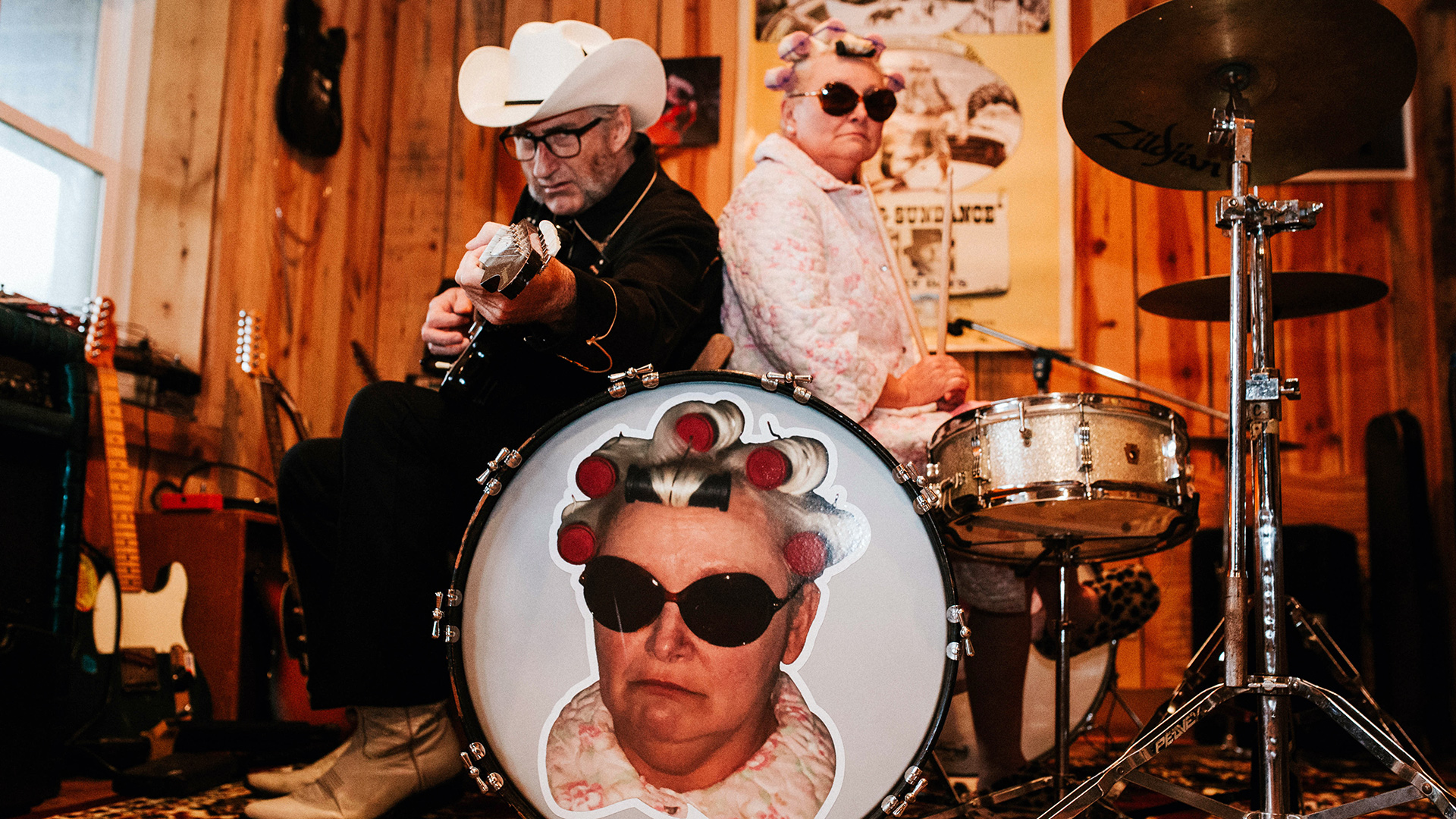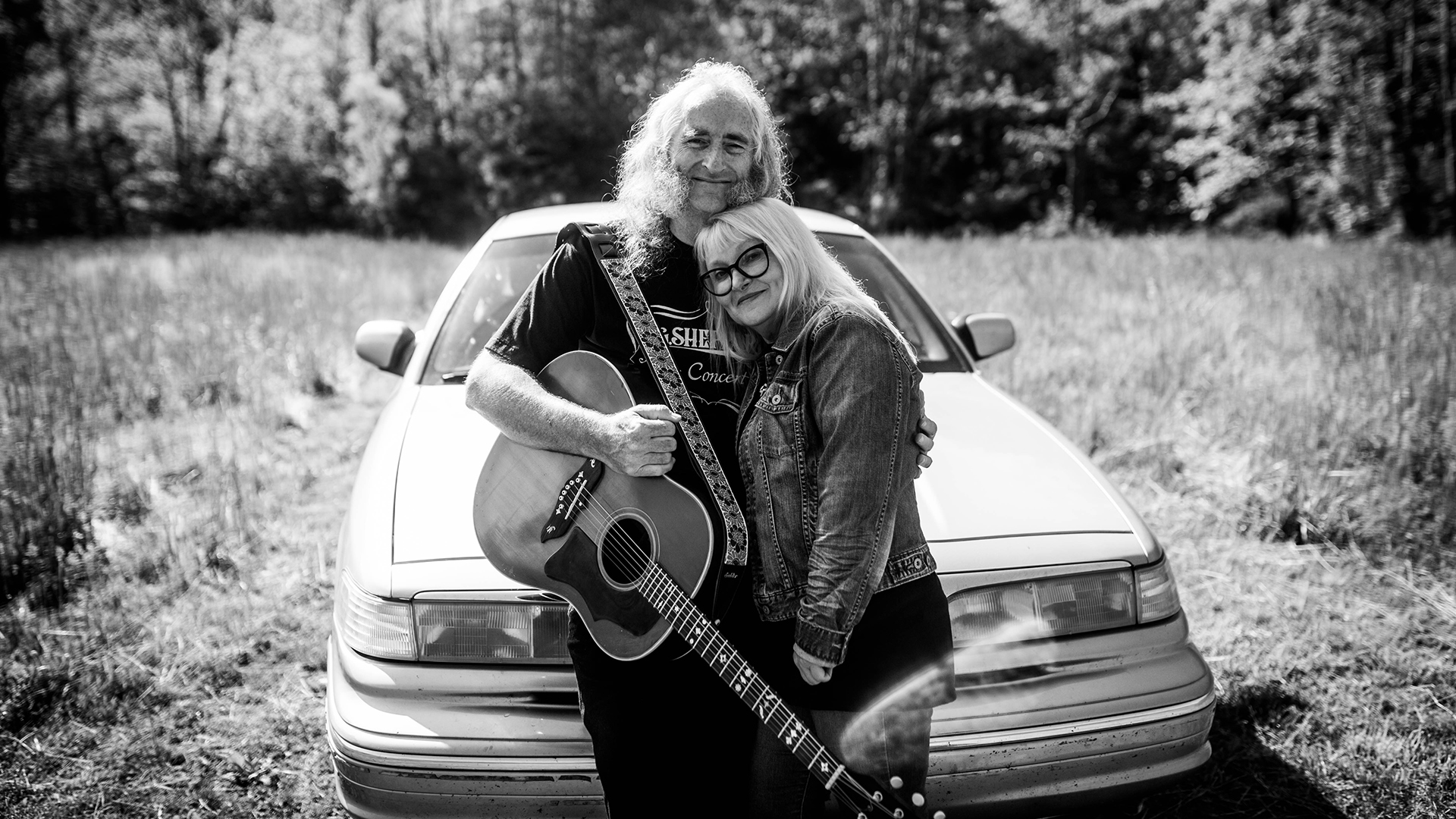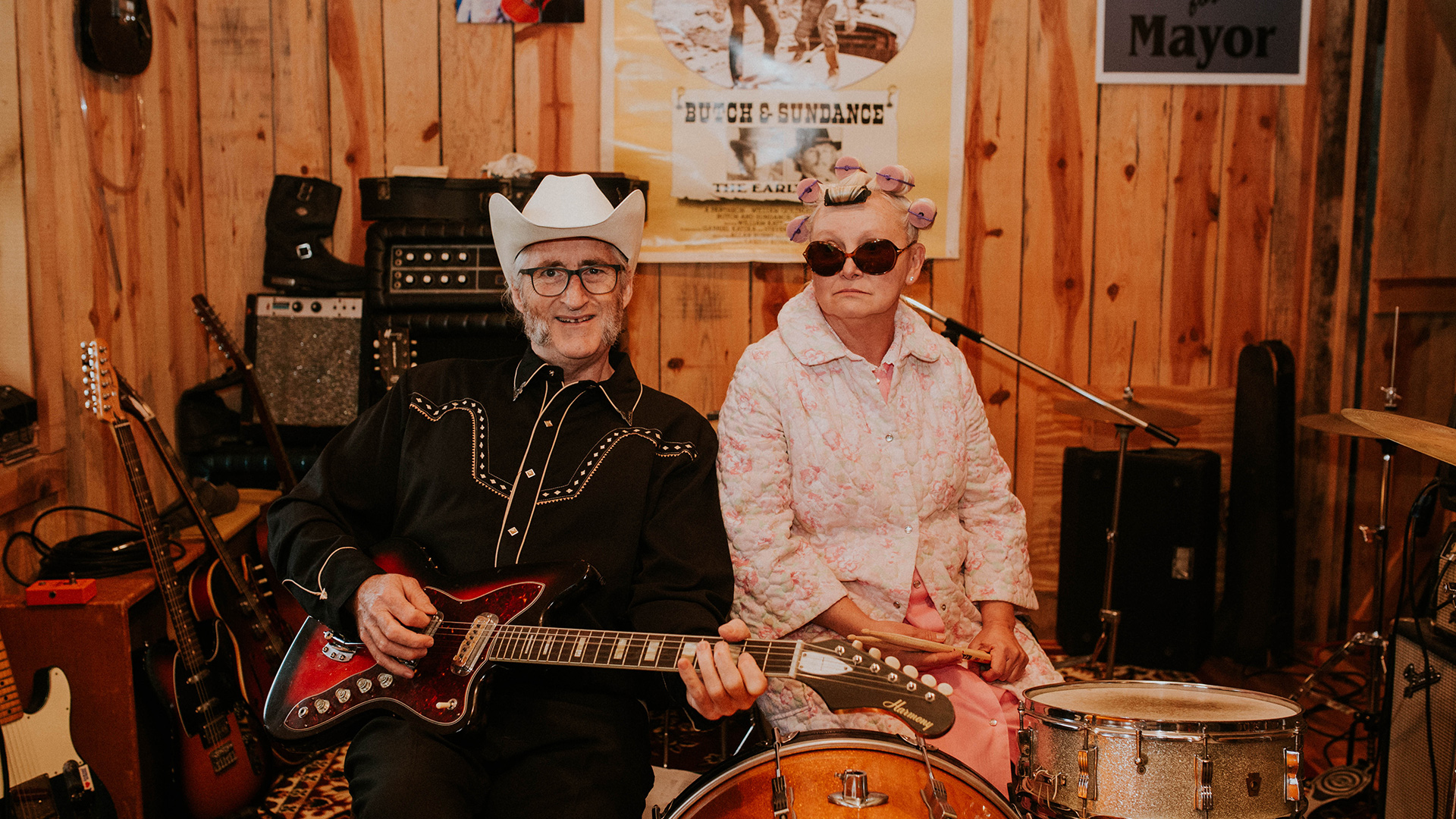
Teach Joyfully. Then Rock.
Drs. Jordan and Hawley—who’ve covered teaching with our editor for a decade—tell a story that belies the negative view of public-school teachers.
Let’s begin with a colossal understatement: 2023 is a tough time to be a teacher.
Continuous, deadly school shootings. Political attacks accompanied by directives about what teachers can and cannot teach. Ongoing battles over school funding and vouchers.
Yes, there is a teacher shortage. Yes, fewer college students want to become teachers. Yes, a large percentage of teachers leave their classrooms within the first five years of their teaching careers.
And no, answers don’t seem in sight for many of these issues.
These issues are perhaps even more critical in the American South, where teachers often experience a pay rate that cannot keep up with increasing costs of living, and all this without the bargaining power of effective unions. In fact, when you consider the power of teaching unions in the United States, nine of the 10 weakest unions in the country are in Southern states, according to the Thomas B. Fordham Institute. The South's highest ranking union, Alabama’s, takes last place in the Top 20, and we don’t show up again until Kentucky at number 28.
So, why in the world would someone become or remain a teacher? This might be just the question we need to answer if we hope to provide support for teachers as professionals. Certainly, teachers themselves have much to teach us, if our policymakers would only listen. The South, as it were, might need a little salvation when it comes to our public-school advocacy.
Both of us are current teacher educators and former teachers. We were born and raised in the South. We are parents with children in public schools. We have spent the better part of the last decade writing about teachers and teaching in the South—and done much of that work with the editor of this publication. We advocate for teachers—and always push back against those who make negative assumptions about public schools and their teachers.
The dominant narrative about teaching in public schools is that the profession is a trap: teachers are unhappy people, caught in low-paying, high-stress jobs, all wishing they worked elsewhere.
The teachers we know are multifaceted, talented, hard-working folks. Now more than telling their stories is necessary. So, we got one—a fantastic one—to tell you today…
We interact with teachers every day, and yes, teaching is stressful. Teachers are in fact overworked and underpaid (despite what someone who has never held that job may tell you from their comfortable political office). However, we know multitudes of joyful teachers, people who go about their work as masters of the learning profession. We’ve heard huge numbers of stories about pure and total engagement in a profession filled with the reward of working with and caring for others.
The teachers we know are multifaceted, talented, hard-working folks. So why don’t we tell their stories more often?
Now more than ever, telling those stories is necessary. So, we got one—a fantastic one—to tell you today…

Recently, we found ourselves in Pomeroy, Ohio, at a small bar called the Court Grill to see a two-piece band from Louisa, Kentucky, made up entirely of teachers. The Court Grill might not be the kind of place where you’d expect a story of teaching, artistry, and love of place to start—but so be it. And the local IHOP, where we ended the night, might not be the spot where you’d expect to hear deep conversations about teaching. (And Southerners, don’t judge us. There wasn’t a Waffle House around. We confess our sin.)
But by the time the evening ended, in an IHOP booth, talking with friends, we decided that teachers need a high five—a big, collective, smile-inducing high five. For too long, the song written for teachers has played out in the sad, three-quarter time of the waltz. It’s time for some rock ’n’ roll when discussing teachers, because so many teachers are doing so much good.
Speaking of teachers, rock ’n’ roll, and doing good, we’d like to introduce you to a couple of our teacher friends. Imagine the musicians you’d get if you told ChatGPT to concoct a duo of two brilliant hillbilly rock ’n’ rollers, one with hair rollers and one with sideburns and both with Southern Appalachian accents so smooth you feel like biscuits just might fall down from heaven at any given moment. Now, throw ChatGPT a knuckleball that would make Phil Niekro say “Amen, John Glenn '': tell it to make the drummer a stoic-faced woman in hair rollers.
Hailing from Louisa, the Laid Back Country Picker and Honey are famous both as teachers and as musicians. We do not use the word “famous” lightly. Laid Back and Honey, also known as David and Teresa Prince, or as Luna and the Mountain Jets, are a husband-and-wife, teacher-musician duo, who go about their crafts with creativity and kindness. We could talk for quite a spell about their musical talents, but y’all and Google should get to working that part out. Today, we’re talking about smart teachers.
In town for the Appalachian Studies Conference in Athens, Ohio, we didn’t miss a chance to take a short drive to Pomeroy to see Laid Back and Honey perform. Joining a packed house, welcomed by a gourmet assortment of olives delivered by LBCP himself, we were party to one hell of a show. Given their rising popularity, we decided that brunch the next day was in order if we were to actually have a chance to catch up and ask them all of our questions about their lives as teachers and musicians.
David and Teresa communicate a deep love for the reality that their roles as educators allow them to be agents of positivity, offering care and support to a community that cares for and supports them in return, as artists and teachers.
We sat down with David and Teresa for a reason. Well, a couple of reasons. First, we think they’re great humans. But second, and relevant to this piece, we think they’re vibrant and innovative educators who communicate a true love of the profession. David and Teresa live the story of teachers that needs telling. So, we had questions. Particularly, as we worked out our notion of how to tell the stories of teachers like them who persist in joyful practice, we wanted to know how? How does a teacher, facing all the pressures mentioned at the start of this piece, have the energy to teach all week, hop in a Ford Crown Vic, drive four hours, play music, and still want to talk about teaching?
We got our answer.
We had to know, do teachers who persist do so because they displace their frustrations through other avenues, or do teachers who persist do so because that’s what teachers do? David’s words rang louder than that 1959 Montgomery Ward Town and Country that he slides like he’s Duane Allman, but remember Duane never taught school all day:
“I never forget about teaching.”
If you’re taking notes, y’all write that down.
As teacher educators, we experience a profession in distress on a daily basis. Teaching, as it were, is not rock ’n’ roll for the young folks right now. And, we get it. They receive an entirely different message—one of caution and fear. However, as we listen to folks like David and Teresa, we are reminded that there’s always another side to every story. The trouble now is that we aren’t doing a good job of telling that story.
So what stories do persistent, joyful teachers tell? What does it mean to “never forget about teaching”?
David and Teresa sat with us for quite a spell, discussing the difficulties of their jobs in areas where families face numerous challenges, often where schools serve as the most powerful hubs of social support. Teaching is hard, even for the joyful. Still, over pancakes, David and Teresa communicate a deep love for the reality that their roles as educators allow them to be agents of positivity, offering care and support to a community that cares for and supports them in return, as artists and teachers.
Difficulties are usually the stopping point in current discussions about teaching. But to David and Teresa, difficulties are just conversational footnotes. Instead, they focus on how teaching is a vehicle for caring for others. They discuss teaching as a longitudinal activity, where you may not always think folks are listening, until one day, they let you know they hear you. For David and Teresa alike, to be a teacher in a community is to be of the community, interconnected with the people of a place in a way that can’t be described in test scores or school ratings.
For David and Teresa, teaching, just like their music, is really just an extension of who they are; a natural expression of being interconnected with a place and time. Perhaps, then, that’s the secret sauce, caring about others as a core value, not just as a practice. To “never forget about teaching” means that teaching isn’t even something that must be recalled or reminded. It isn’t a persona to be played. There’s no set change or wardrobe swap. Instead, to be a teacher, is to embody a core root code to the algorithm of being a caring human. Put simply, it’s taking in various situations and then doing the best thing possible to treat people right. To be a teacher is to constantly ponder what, or whom, we are teaching for.

Joyful teachers are contagious.
Is it just a coincidence that a student who learned social studies from a teacher who is also a musician is now both an art education student and a vocal advocate for increased support for arts education in rural Appalachia? We don’t think so. And we think this might be a little bit of that teacher/joy magic we are trying to figure out. These are the stories to tell—the serendipitous and interconnected realities of joyful teaching as an extension of self, creating a domino effect in the world. A social studies teacher who loves music inspires a student who goes on to be a fierce advocate for the arts in Appalachian schools. That's a story worth telling.
To quote our friends David and Teresa, as far as being an educator goes, “We probably have it better than you think.”
When we listen to folks like David and Teresa, we are reminded of the power of transformative teaching. We are also reminded that teachers teach in all sorts of spaces—classrooms, stages, communities, wherever they are. We’ve heard enough stories of why not to teach. It is time, as a society, that we do a better job of telling the stories of the brilliant teachers we have all around us, who persist in spite of, who persevere because of, and who rebel with an arc toward treating people right.
As we mentioned earlier, this experience also led us to brainstorm ways to help elevate the voices of teachers who are resisting the negative conditions they face and who are actually rebelling against systemic oppression from within. These are the teachers we need to learn from if we are to regain a sense of teachers as professionals and to demonstrate the ways teachers transform lives through their daily experiences with their students. To do this, we are issuing a call for book chapters to be part of a collected work focused on joyful teaching as rebellion in classrooms across the South. If you are such a teacher or you know someone who is, we want to hear from you. Please contact us here.
To quote our friends David and Teresa, as far as being an educator goes, “We probably have it better than you think.”



